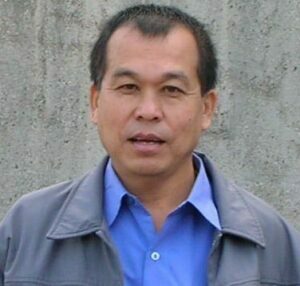We cannot afford the present sufferings and pains to continue longer and getting transformed to long-term ill-feelings.

By Amar Yumnam
The training I got from my teachers in Manipur and Bombay was on analysing, understanding and application of these to economic problems – how these were done in the past and how are these to be done in the present; I am talking of the period from 1973 to 1985. After this, the Economists came to know increasingly that problems and issues are not plain single dimensional ones but multi-dimensional. Following up on the training given by my teachers and the profession I have been in continuously since then, my concerns and commentaries have been mostly on the socio-politico-economic issues of the North Eastern Region of India, in which those of Manipur have been most common.
Since the analysis and understanding of any socio-politico-economic problem has little meaning unless we also apply our mind on how to address the solution of the problems for the larger interest of the society. The term society itself immediately brings to mind the all-significant understanding of the socio-demographic composition of the population. This understanding should necessarily lead to a discussion of the possible interventions the state should put in place for peace and forward movement. Government is for governance, and governance necessarily involves implementations of policies to carry the society forward.
There could be differences of opinion on the relevance, scale, component and timing of a policy, but it can never be questioned that a government has to perform on the bases of the policies she has put in place; policies are by no means casual affairs but products of serious application of collective mind of those in power.
While pondering over the visible characteristic of lack of application of mind to evolution of policies to address the problems of the land and the people of Manipur, I wrote in April: “Three events have made the imperative for policy evolution rather paramount. First, the COVID 19 restrictions did cause huge upheavals in the social dynamics of Manipur. In this, the relative burden have been greater for the people in the lower strata of society. Manipur needed a policy to address such and related issues from the angle of justice. But this has not happened. Second, the physical action against poppy has been there for quite some time. But this too has not gone beyond action and evolve a policy for longer term socially purposeful behavioural reforms. Third, Manipur is facing right now a crisis of shortages of water. While the immediate response could be only in terms of certain actions, there is fundamentality to evolve a policy now such that such experiences are not repeated. The present is to be utilised for applying the mind to the causality of the problem, and evolve the interventions needed for a long term solution within a policy framework. These have not happened.”
It is in the backdrop of this seeming lack of application of mind to evolution of policies to serve as bases for government action that Manipur has just faced a very unfortunate and painful inter-ethnic crises; during my life-time so far I have never seen such a huge one. While time and urgency may not be of immediate importance in the case of routine development interventions, it cannot be so in the case of what has happened recently. First, the quantitative interventions for living, livelihood and meaningful engagement in activities have to be ensured sooner than later. Second, we cannot afford the present sufferings and pains to continue longer and getting transformed to long-term ill-feelings.
But what is most disturbing is that the present government looks as ever non-committed to evolution of policies and robust implementation of programmes. The recent very unfortunate events necessarily demand that the rehabilitation and resettlement processes are completed as fast as possible such that the pains do not become permanent ill-feelings against one another. If it becomes so, long-term peace and sustainable development would be impossible.
(Professor Amar Yumnam is Visiting Professor, Centre for Economic and Social Studies (CESS), Nizamiah Observatory Campus, Begumpet, HYDERABAD, TELENGANA – 500016, India. He is also former Vice Chancellor (I/C), Manipur University, India.)
